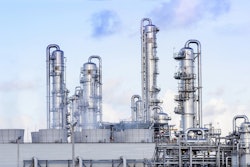A study completed earlier this month by federal health officials found that chemicals leaked into West Virginia drinking water systems in early 2014 were unlikely to produce adverse health effects at levels recommended by the government.
The year-long analysis by the National Toxicology Program found that most of the chemicals analyzed in numerous studies did not show signs of negative effects, and those that did were only reflected at levels well in excess of the drinking water threshold.
The Centers for Disease Control and Prevention issued a screening level of 1 part per million for a coal washing chemical that leaked into the Elk River on January 9, 2014, but officials acknowledged that little was known about appropriate exposure levels at the time.
A storage tank that included 4-methylcyclohexanemethanol, or MCHM, and other chemicals ruptured and overwhelmed the water utility serving some 300,000 customers near Charleston.
Local residents went without water for several days under do-not-drink advisories from the water utility and the governor's office. Numerous residents complained of health problems long after the orders were lifted.
The NTP study, however, supported "the adequacy of the drinking water screening level concentrations recommended by CDC at time of spill."
Although some residents reported rashes and skin irritation in the wake of the spill, the agency said that MCHM is a skin irritant only at much higher concentrations.
One of their studies also found low birth weights when pregnant rats were given elevated doses of MCHM, but a study by West Virginia officials reportedly found no increase in low birth weights or pre-term births in the area around the spill.
Freedom Industries, which owned the tank responsible for the leak, declared bankruptcy shortly after the spill and two former executives were convicted on federal pollution charges.
The trial in a class-action lawsuit against Eastman Chemical — which owned the chemical product that spilled — and the water utility in question was recently rescheduled for October.
Did The West Virginia Chemical Spill Harm Residents?
A recently released federal study looked at whether or not the Freedom Industries spill produced adverse effects to those living nearby.
Jul 22, 2016
Latest in Chemical Processing
Jury Awards $332 Million to Man in Monsanto Case
November 3, 2023
EPA Boosts Biofuel Requirements
June 22, 2023
Bayer Owes $6.9M Over Weed Killer Advertising
June 16, 2023






















